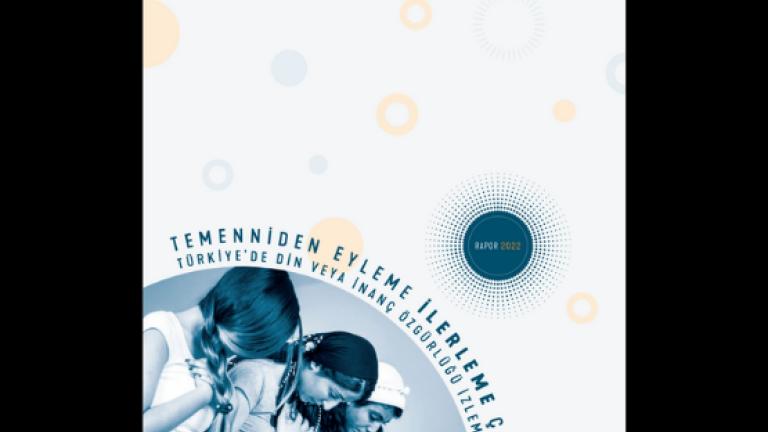
For the report covering the date range from April 2019 to December 2021, atheist and deist groups from various religions or belief communities; more than 50 people were interviewed, ranging from relevant civil society organizations to human rights defenders from Istanbul, Ankara, Izmir, Malatya, Elazig, Mardin, and Diyarbakir.
Continuing issues in the field of freedom of religion or belief still await resolution
In the report written by Dr. Mine Yıldırım, it was determined that the long-standing issues in the field of freedom of religion or belief in Turkey are still waiting to be resolved. It was emphasized that deep systemic inequalities regarding freedom of religion or belief are also visible during the COVID-19 pandemic.
In the report, it was stated that multidimensional efforts of the executive, legislative and judicial organs are necessary for the solution of the problems, and it has great importance to comply with the decisions of the international human rights compliance control mechanisms.
The right to association is suspended
The report also drew attention to the fact that no religious or belief community has legal personality in Turkey and the problems created by this.
As the non-Muslim community foundations still cannot elect their board of directors undermines the right to organize: “The elections for the board of directors of these foundations have been blocked since 2013. As a result, the functioning of community foundations and the communities that benefit from them are paralyzed and weakened. Besides the administration and financing of non-Muslim community properties such as schools, hospitals, church and synagogue buildings, these foundations are also involved in philanthropic activities and serve as a lifeline for their communities.”
Atheists, deists, and agnostics face violations in all aspects of life
Another remarkable finding in the report is regarding the violations faced by atheists, deists, and agnostics in the workplace, in the family, and in the education system: “Atheist, deist, and agnostic parents and students do not have the right to be exempted from compulsory Religious Culture and Moral Knowledge courses. Those who criticize religion or belief in general, especially Islam, or certain interpretations of that religion or belief, are at risk of being prosecuted under the Turkish Penal Code (TCK) by being the subject of complaints.”
Rejected by both secular and religious circles, women are forced to live a double life. In the report, it was stated that as a result of interviews with women belonging to different religions or belief communities, women faced great obstacles in their free will while exercising their human rights, including freedom of religion or belief. It was reported that women continue to be vulnerable, especially at home, are oppressed by the secular and religious sections of society, and often feel obliged to live a double life. In addition, the report stated that the representation rate of women in religious institutions is extremely low.
For the elimination of all these inequalities and violations embodied in the field of freedom of religion or belief.
Some of the concrete suggestions offered are:
- Turkey should lift all reservations it has made to international human rights treaties.
- Turkey should ratify the European Charter for Minority Languages and the Framework Convention for the Protection of National Minorities.
- Turkey should take general measures without delay to prevent similar violations by fulfilling the ECtHR judgments and the Opinions of the Human Rights Committee in cases concerning freedom of religion or belief.
- Government officials should take appropriate steps to understand barriers to freedom of religion or belief in the family, religious or belief community, and workplace.
- The religion section in the population records should be removed. Until the section is removed from official records, individuals should be allowed to express their religion or beliefs as they choose. To include worldviews such as atheism and agnosticism, the practice of choosing from a list of limited options must be stopped.
- The Ministry of National Education should review and change its programs and practices to support the freedom of thought, conscience, and religion of the child in the education system.
- Measures should be taken to fully protect the freedom of association of non-Muslim communities.
- In cases where women and LGBTIs are critical of dominant belief dogmas and teachings, state authorities should take measures to support the freedom of expression and freedom of religion or belief of these groups and to ensure that these groups are not stigmatized, or threatened or prosecuted. When these people are targeted, authorities should take action to protect them.


